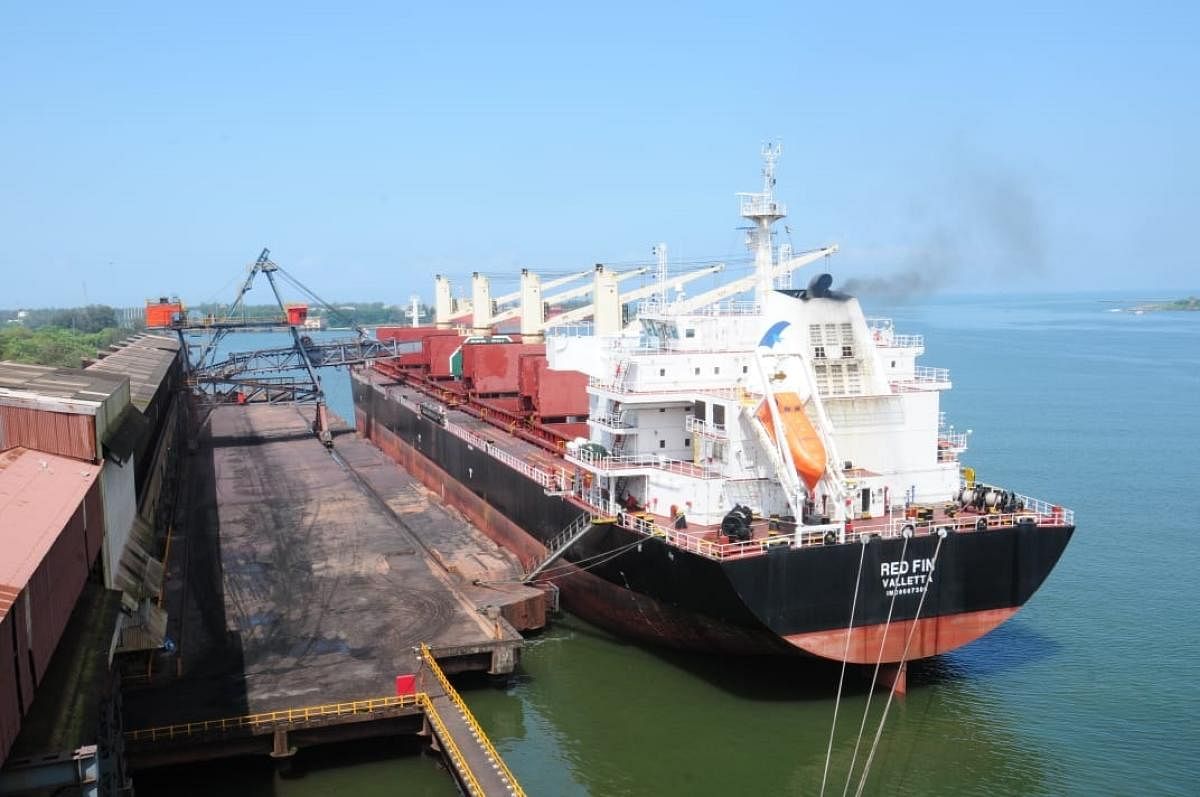Steel ministry undertaking KIOCL Ltd has embarked on a Rs 3,500 crore expansion and diversification programme to tap emerging opportunities in the steel sector.
The company’s expansion programme comes in the wake of the Central government’s ambitious programme of achieving 300 million tonne per annum steel production by 2030. Currently, Steel production is around 100 million tonnes.
KIOCL currently operates a 3.5 million tonne per annum pellet plant at Mangaluru and largely exports its pellets to China, Japan and West Asia among other countries.
As part of its expansion programme, KIOCL is setting up a 2-lakh tonne per annum (LTPA) ductile iron spun pipe plant under forward and 1.79 LTPA coke oven plant under backward integration projects.
The investment required for this project is estimated at Rs 837 crore, which will make its blast furnace unit economically viable.
The project will be completed over the next 24 months, M V Subba Rao, Chairman and Managing Director, KIOCL said.
The company is also setting up a 2 million tonne per annum capacity pellet plant to produce high fluxed BF grade pellets in a joint venture with another Steel Ministry undertaking RINL at Vizag.
The entire produce will be consumed by RINL blast furnaces. The project, estimated to be completed in 24 months from the date of placement or order on the main technological package supplier, will see an investment of Rs 1,033 crore.
The draft Share Holder’s Agreement has been approved by Boards of both the Companies. As a parallel action, the company has submitted the necessary application to MoEF for obtaining Terms of Reference.
MECON have been engaged as the Technical Consultant for obtaining the Environmental Clearance from MoEF and Consent for Establishment from Andhra Pradesh State Pollution Control Board.
KIOCL, which has been working without a captive iron ore mine since the shut down of its own mines at Kudremukh in Chikkamagaluru district since 2005, is also developing Devadari iron ore block spread over 470 hectares in Ballari district.
The state government had allotted the new mines to the company in January 2017.
The new mining block is estimated to yield 2 MTPA iron ore. It is also setting up beneficiation and pellet plants with 2 MTPA capacity each in Ballari to exploit the iron ore from Devadari block.
The combined investment for these projects is estimated at close to Rs 2,000 crore. “Mine plan has been approved by the Indian Bureau of Mines and we are in the process of obtaining environment and forest clearance for the project,” Subba Rao said in the annual report.
As part of the Devadari mine development, KIOCL is also commissioning railway siding, water pipeline, power transmission line, conveyor corridor.
The iron ore produced from this mine will be transferred through road, railways and utilised in the existing pellet plant and pig iron plants at Mangaluru.
It is also setting up a 5 MW captive solar power plant to support the government’s National Solar Mission, in Karnataka at a capital expenditure of Rs 24.17 crore.
The company is currently producing pellets, made from iron ore fines, generated during mining which otherwise would add to the environmental pollution.
During the year, KIOCL achieved an operating income of Rs 1,887.71 crore as compared to Rs 1637.18 crore in the previous year, a growth of 15.30%.
Revenue from export sales increased by 30% to Rs 1,247 crore from Rs 959.58 crore and domestic sales decreased from Rs 610.56 crore to Rs 581.78 crore in comparison to Previous Financial Year.
The company achieved export sales of 1.52 million tonnes of Pellets, highest after the closure of Captive Mines at Kudremukh.
During the year about 48% of the total exports made were to markets other than China, to steel mills in UK, Japan, South Korea, and Oman among others. The UK alone contributed 17% of total exports
During the fiscal 2018-19, KIOCL achieved 37.26% rise in profit after tax at Rs 111.86 crore compared to Rs 81.48 crore in the previous year.
KIOCL is also spreading its footprint globally by successfully supplying pellets to steel mills in South Korea, Japan, Europe, and West Asia among others.
The company has also entered into UK market during the year.
